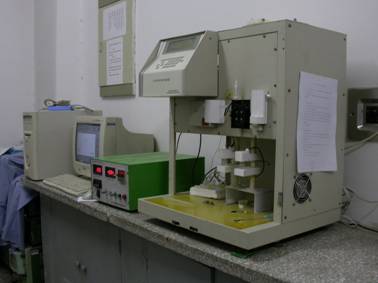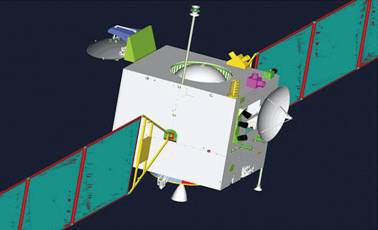Once one of the most innovative nations on earth, in recent years, China has become known for its technological stagnation, a place where pirated software and a stiff and outdated Communist regime has spelled the death of innovation. Talk about science, technology, and innovation in China revolves around piracy, educational models which stifle creativity, and a culture which punishes free thinking and personal discovery. Yet, in some areas China is also excelling scientifically. China is only the third country to have an astronaut walk in space and Chinese satellite and military technology is some of the most advanced in the world. So, is the problem the education system, the structure of the language, the tax structure? Or is it the foreign perception of China’s scientific and technological environment that has grown outdated and rigid?
Whatever the cause, the Chinese government is pulling out all the stops to address the problem. In October 2007, Hu Jintao’s report to the 17th CPC Congress entitled: Hold High the Great Banner of Socialism with Chinese Characteristics and Strive for New Victories in Building a Moderately Prosperous Society in All Respects, he spoke extensively about the need to “transition from relying heavily on increased consumption of material resources to relying mainly on advances in science and technology, improvement in the quality of the workforce and innovation in management.”

Photo: snowyowls
For China, importance of the science and technology sector is not just limited to pure scientific progress. One major aspect of the battle to increase China’s sci-tech output is cultural. Many people seem to feel that in this area, China, like Rodney Dangerfield, “can’t get no respect”. “We will further publicize the fine traditions of Chinese culture,” said Hu at the CPC meeting, “and use modern means of science and technology to exploit the rich resources of our national culture.” I’m not sure how one exploits the rich resources of national culture but I think Hu’s words make clear, that like a lot of major issues in China, this one is personal.
It’s also about military force. “They have a lot of technology locked up in the military” Cambridge University professor Peter J. Williamson told the New York Times in 2008, “and now the government is reducing budgets and pressing agencies to privatize.” To the surprise of international observers, “suddenly, a lot of technology people thought didn’t exist has come out from behind that curtain.” Only hours after China succeeded in becoming the third nation to put a man in space, US Army Lieutenant General Edward Anderson responded, “In my view it will not be long before space becomes a battleground.” Rich Haver, former special assistant to American Defense Secretary Donald Rumsfeld concurred, “I believe space is the place we will fight in the next 20 years.” India, spurred by China’s use of a ballistic missile to shoot down one of it’s own satellites has created a special military department called the Integrated Space Cell in order to “utilize more effectively the country’s space-based assets for military purposes and to look into threats to these assets,” reported the Asian Times.

Photo: gruntzooki
The Chinese government has been attacking the technology issues with their usual zeal, drafting plans and allocating huge amounts of financial resources. The Chinese technology sector has been rebuilding itself since Deng Xiaoping opened China’s economy to foreign investment and set about a transformation in global science and IT sectors. In Guizhou Province, Chinese scientists are constructing the world’s largest telescope. The telescope will be the length of five football fields and cost 100 million USD. Billions of dollars are being poured into IT, aerospace, and bio-med technologies. China is already the world’s biggest producer of phones, computers, and vaccines.
Still, as quality of life in China’s major cities rivals that of any of the world’s other major metropolises, and Chinese GDP continues to grow, albeit at a slower rate, many overseas Chinese are returning home with PhDs in hand and foreigners are increasingly being drawn in by the government’s efforts to attract more foreign scientific talent. In America, the number of PhDs in technology fields continues to shrink, and manufacturing is moving overseas, leaving some to conclude that America is losing it’s edge as bastion of scientific and technological development.

Photo: NASA
Many of the targets attached to government funding were expected to be reached by 2010. China’s high-tech industry, the third largest in the world, is expected to bring in 1.45 trillion USD in 2010 – almost triple the totals just a few years before. The National Development and Reform Commission also projects the computer industry will rake in 377 billion and digital media profits will reach almost 85 billion USD.
The report acknowledges, however, that there is still a long way to go in innovation and copyright protection. Despite producing the second largest amount of scientific papers in the world, the emphasis appears to be on quantity rather than quality. Kingsoft, one of China’s leading software companies, has had to shift from PC software to online software because their products were being pirated at a drastic rate, preventing them from competing in the global market. President Hu responded by encouraging law enforcement to “lawfully and severely crack down on and effectively curb law-breaking and criminal acts of violating intellectual property right.” The government has also tried to force computer makers to only sell computers pre-loaded with legal operating systems.
“The key to realizing the strategic goal in the new century is to push forward science and technology as a powerful engine for the country's economic and social progress,” said Premier Zhu Rongji. "The coming five to ten years is a key period for China's economic and social development, as well as for strategic improvement of the economic structure and industrial upgrading." Premier Zhu spoke uttered these words in February 2001, at the establishment of the State Supreme Science and Technology Award. As the first decade of the new millennia draws to a close, many in China and abroad will be assessing China’s technological development to see if China’s scientific and technological engine is powerful enough yet to drive the country through the financial crisis and into a dominating role in the new world economy.
***
Related Links
Sohu's Q1 net profit doubles on robust online game business
China refutes "irresponsible" accusation of cyber-attacks
Homemade 3G handset standards enter new growth era
Chinese spies may have put chips in US planes
Warning’╝ÜThe use of any news and articles published on eChinacities.com without written permission from eChinacities.com constitutes copyright infringement, and legal action can be taken.
All comments are subject to moderation by eChinacities.com staff. Because we wish to encourage healthy and productive dialogue we ask that all comments remain polite, free of profanity or name calling, and relevant to the original post and subsequent discussion. Comments will not be deleted because of the viewpoints they express, only if the mode of expression itself is inappropriate.
Please login to add a comment. Click here to login immediately.